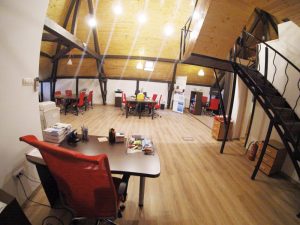The Human Capital Operational Program 2014-2020 contributes to the objectives of the European Union’s strategy for smart, sustainable and inclusive growth and the achievement of economic, social and territorial cohesion. Thematic objectives of the Program refer to: 1) Promote sustainable and quality jobs and support the mobility of workers This objective will be achieved through the following investment priorities:
- Access to employment for jobseekers and inactive people, including long-term unemployed and people with low employment opportunities, including through local employment initiatives and support for labor mobility;
- The sustainable integration into the labor market of young people, especially those who do not have a job, who are not in education or training, including young people at risk of social exclusion and young people in marginalized communities, including Implementation of the youth guarantee;
- Self-employment, entrepreneurship and business start-ups, including micro-enterprises and innovative small and medium-sized enterprises;
- Adaptation to change for workers, businesses and entrepreneurs; The modernization of labor market institutions, such as public and private employment services, and improving the satisfaction of labor market needs through measures to stimulate transnational mobility of workers and mobility programs and through better cooperation between institutions and relevant stakeholders.
2) Promoting social inclusion, combating poverty and any form of discrimination This objective will be achieved through the following investment priorities:
- Socio-economic integration of marginalized communities, such as rromi;
- Increasing access to affordable, sustainable and high-quality services, including health care and social services of general interest;
- Promoting social entrepreneurship and professional integration in social enterprises and promoting the social and solidarity economy to facilitate access to employment;
- Local development strategies developed at community level.
3) Making investments in education, training and training to acquire skills and lifelong learning This objective will be achieved through the following investment priorities:
- Reducing and preventing early school leaving and promoting equal access to pre-primary, primary and secondary quality education, including formal, non-formal and informal learning pathways for reintegration into education and training;
- Improving the quality and efficiency of, and access to, tertiary and equivalent education, with a view to increasing participation and education, especially for disadvantaged groups;
- Increasing equal access to lifelong learning for all age groups in formal, non-formal and informal frameworks, updating knowledge, skills and skills of the workforce and promoting flexible learning pathways, including through vocational guidance and validation of skills acquired;
- Increasing the relevance of education and training systems in the labor market, facilitating the transition from education to the labor market and strengthening training and training systems and their quality, including skills anticipation mechanisms, adaptation Curricula and the establishment and development of workplace learning systems, including dual learning systems and apprenticeship programs.


